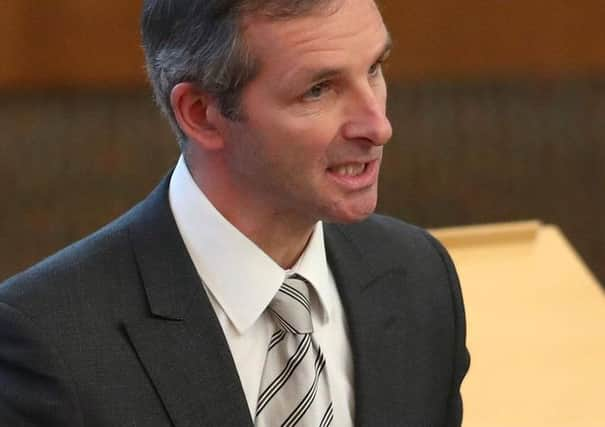Scottish Government accused of overseeing another ‘IT calamity'


Disclosure Scotland, which carries out criminal background checks on behalf of employers, proposed an initial business case costing £34.1 million for the bespoke Protecting and Safeguarding Scotland (PASS) system.
Staff were able to use the new cloud-based software from August 2018 but the project cost ballooned to £78.5 million.
Advertisement
Hide AdAdvertisement
Hide AdThe firm repeatedly brought further businesses cases, increasing the expected spend to £51.1 million in November 2017, which was adjusted with around £5 million of optimism bias - which influences decisions based on the assumption it will be less expensive than the reality - meaning the final total was £56.3 million.
The final spend was £22.1 million more than initially projected.
Scottish Lib Dem justice spokesman Liam McArthur said: “This is yet another IT calamity under the SNP, to be added to the likes of the failed i6 policing project, NHS 24 and the CAP system that caused turmoil for farmers.
“While this system is now just about up and running, at significant extra cost and time, too many other public agencies are still relying on dysfunctional IT, including the national force.
“The SNP Government now needs to demonstrate how it is sharing the learning from these failures so that more projects don’t suffer similar fates.”
Despite the overspends, the PASS project is still not working at full capacity, requiring temporary staff to carry out some of the functions the software should take up.
Caroline Gardener, Scotland's Auditor General, said: "I have reported on the failures of many ICT projects in recent years and set out clear principles public bodies should follow.
"There are lessons to be learned from Disclosure Scotland's experience with the PASS system. While the rollout in September was a significant milestone, there have been real weaknesses in control and oversight of the project.
Advertisement
Hide AdAdvertisement
Hide Ad"The system was delivered late, over budget and with less functionality than had been originally intended. There remains more work to be done before its full ambition, and wider transformation, is realised."
Jenny Marra, the convener of the Public Audit Committee, said it will hear from the Auditor General early next year.
She said: "Our committee has seen too many cases like this now, and lessons learned must actually be put into practice so that taxpayers' money is no longer wasted on poorly managed and poorly governed ICT projects.
"This organisation is too critical to see mismanagement like this. We'll hear more from the Auditor General on this case in the new year.”
Disclosure Scotland chief executive Lorna Gibbs said: “The report highlights a number of challenges faced during the transformation period, which give clear indications of lessons that must be learned going forward.
“The old IT system used by Disclosure Scotland was getting to the end of its useful life and in order to allow us to continue safeguarding vulnerable groups, we had to replace it.
“Our aim was not only to create a system which would provide a better service for our customers but also allow us to reduce costs, in turn saving taxpayers’ money. Putting police data in the cloud had never been done before anywhere in Europe and as the programme developed, a number of challenges more difficult than originally expected, came to light, resulting in us spending more money and taking longer than we had anticipated.
“Disclosure Scotland has taken the greatest care to spend public money wisely and will continue to do so. However, that doesn’t mean there are not learning points from the Auditor General’s report. We have already made some changes to our governance structures and we will, of course, make any further changes needed so we can improve.
